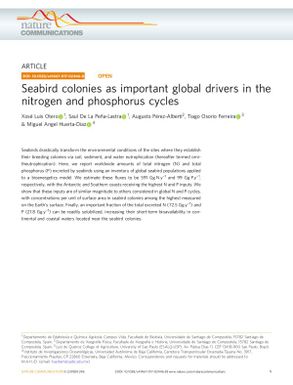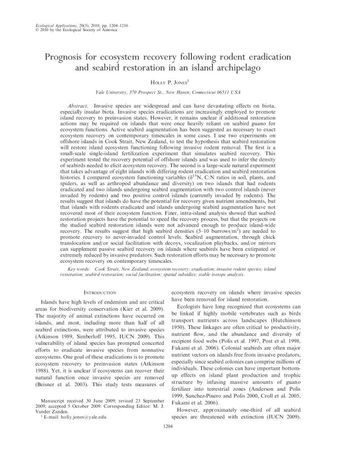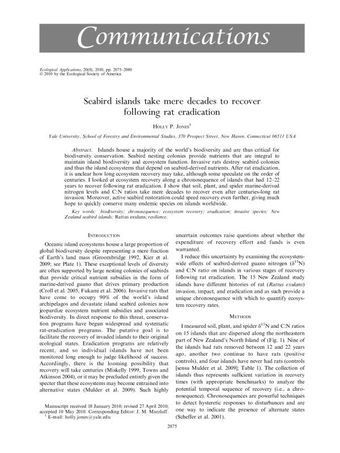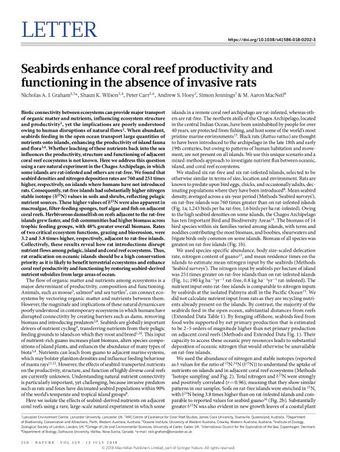Seabird colonies as important global drivers in the nitrogen and phosphorus cycles
- Description:
- Seabirds drastically transform the environmental conditions of the sites where they establish their breeding colonies via soil, sediment, and water eutrophication (hereafter termed ornitheutrophication). Here, we report worldwide amounts of total nitrogen (N) and total phosphorus (P) excreted by seabirds using an inventory of global seabird populations applied to a bioenergetics model. We estimate these fluxes to be 591 Gg N y?1 and 99 Gg P y?1, respectively, with the Antarctic and Southern coasts receiving the highest N and P inputs. We show that these inputs are of similar magnitude to others considered in global N and P cycles, with concentrations per unit of surface area in seabird colonies among the highest measured on the Earths surface. Finally, an important fraction of the total excreted N (72.5 Gg y?1) and P (21.8 Gg y?1) can be readily solubilized, increasing their short-term bioavailability in continental and coastal waters located near the seabird colonies.
- Display date:
- 2018
- Collections:
- Secretariat of the Pacific Regional Environment Programme (SPREP)
- Publisher:
- Springer Nature
- Content partner:
- Secretariat of the Pacific Regional Environment Programme (SPREP)
- Availability:
- Not specified
-
Copyright status: All rights reservedFind out more about what you are able to do with this itemThis item is all rights reserved, with means you'll have to get permission from Secretariat of the Pacific Regional Environment Programme (SPREP) before using it. For more information, please see our use and reuse page.What can I do with this item?Non-infringing useNZ copyright law does not prevent every use of a copyright work, and this item may be hosted by an international institute or organisation. You should consider what you can and cannot do with a copyright work.No sharingYou may not copy and/or share this item with others without further permission. This includes posting it on your blog, using it in a presentation, or any other public use.No modifyingYou are not allowed to adapt or remix this item into any other works.No commercial useYou may not use this item commercially.
Related items
Welcome and warm Pasifik greetings
The information on this site has been gathered from our content partners.
The names, terms, and labels that we present on the site may contain images or voices of deceased persons and may also reflect the bias, norms, and perspective of the period of time in which they were created. We accept that these may not be appropriate today.
If you have any concerns or questions about an item, please contact us.



